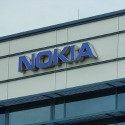Eurobites: Nokia, Elisa go public on private 5G networks push
Also in today's EMEA regional roundup: TIM crosses the digital divide; Swisscom joins the Azure gang; Deutsche Telekom shields the machines.

Also in today's EMEA regional roundup: TIM crosses the digital divide; Swisscom joins the Azure gang; Deutsche Telekom shields the machines.
Nokia and Finnish operator Elisa are to collaborate on a 5G private networks initiative, offering industrial-grade networks to the likes of ports, mines, factories and distribution centers in Finland. The two companies are already on speaking terms, Nokia having supplied 5G RAN to Elisa. Elisa, which has around 2.8 million customers on its books, has long been a 5G pioneer, launching a limited commercial non-standalone 5G service in 2018. (See Elisa beats US, Asia to 5G Finnish line.)
Apulia, a peninsular region in south-eastern Italy (that is also sometimes called Puglia), is the first region in Italy with "no digital divide." So claims Telecom Italia (TIM), which has completed a project bringing FTTx technology within reach of 99.4% of households in the region, with the remaining 0.6% covered by satellite or fixed-wireless access (FWA) connections. As part of its plan, TIM will shortly be proposing to regulator AGCOM that the copper network in Taranto – one of the region's main cities – be switched off and all the city's lines migrated to the new "ultrabroadband" network.
Swisscom has received its benediction from Microsoft, officially being named an "Azure Expert Managed Service Provider" within the global public cloud environment. According to Swisscom, this accolade has been awarded to fewer than 100 companies worldwide.
Deutsche Telekom has launched Magenta Industrial Security, an offering being pitched as a protective shield against cyberattacks for connected machines. According to DT, machines and their control systems are fast becoming the preferred targets for hackers, often bringing production to a standstill and facilitating the theft of business-critical data and intellectual property.
Sky UK has had its knuckles rapped by the Advertising Standards Authority for an ad promoting a "saving" on a package including Sky Signature TV and Sky Broadband Superfast which turned out not really to be a saving at all. The ad said the package was available for £39 as opposed to the usual £52, but failed to make clear that the £52 charge would only apply if a customer bought the services separately, rather than as a package. The ASA told Sky the ad should not appear again. Though it hardly needs saying, BT brought the initial complaint.
Wayra, Telefónica's startup incubator, has joined forces with Zone2boost, a similar initiative backed by CaixaBank, Global Payments, Worldline and Visa. Under the terms of the agreement, Zone2boost and Wayra will jointly choose startups deemed worthy of investment, the hope being that successful investments will bring benefits to all parties involved. In recent weeks, the two organizations have jointly put their money into Proppos, which uses artificial intelligence to recognize products in store and offer a "faster purchasing experience" without the need for scanning.
Italy's antitrust authority has fined Facebook €7 million (US$8.5 million) for failing to comply with a request to correct "improper commercial practices" relating to how it dealt with user data. As Reuters reports, the authority first told the social media giant to better inform its users about its use of their data in November 2018, fining them €5 million ($5.5 million) into the bargain.
— Paul Rainford, Assistant Editor, Europe, Light Reading
Read more about:
EuropeAbout the Author(s)
You May Also Like












